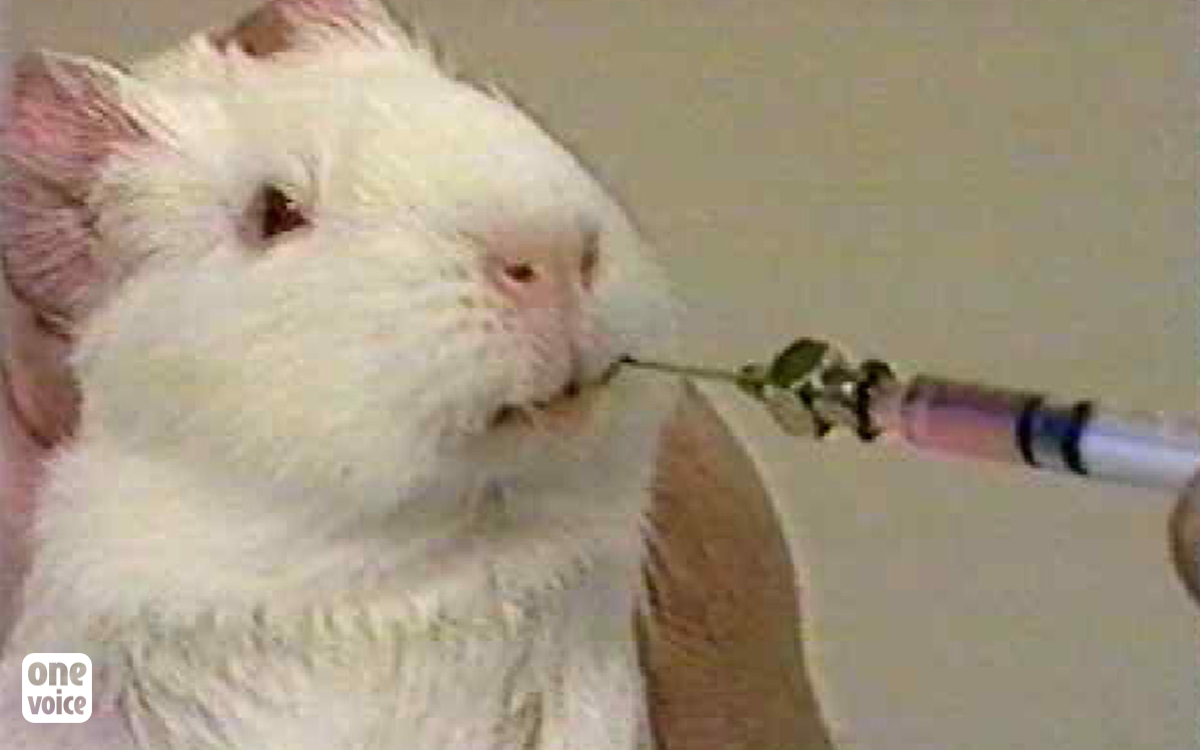

Three research projects on pain and stress approved in 2022
Since the beginning of the year, France has been publishing summaries for animal testing projects approved on the basis of European ALURES data. An opportunity for the public to discover the suffering that awaits animals in laboratories in real-time.
While our campaign on forced swimming continues, we have discovered a new project accepted by the Ministry in charge of research, which is going to subject 420 mice “to chronic pain for 9 weeks or chronic stress for 3 weeks with, in both cases, the development of anxiety-depressive disorders” treated with two antidepressants whose function will be studied thanks to “anxiety-depressive tests with a duration comprising between 5 and 6 minutes”.
This understatement is not the only one, since we have found mention of “behavioural tests” without further clarification in another recently approved project, among others. A nice way to avoid mentioning the forced swimming test, which is precisely this duration.
But we cannot forget that animal testing is packed with other just as unbearable practices. Three ‘strict’ project summaries approved and published online on 13 July have attracted our attention.
Stress in utero, bacterial infections, and chronic pain
The objective of the first project is to study how stress in utero and bacterial infections favour chronic illnesses in lineage, to find avenues for treatment for these illnesses.
For this, 840 pregnant mice will be put into a restraining tube under a bright light (two stress factors) for thirty minutes, three times a day, for six days. Due to this, their young will have anxious and depressive behaviours.
The research team will then subject these 2,016 mice to various experiments, from bacterial infection through force-feeding to implanting electrodes, taking blood, and anxiety tests.
Pain specialists
The second project responds to a request from pharmaceutical companies who want varied pain models to test their analgesic molecules.
The laboratory already has ten models for ten forms of pain yet they want to develop an eleventh. For this, the laboratory staff will ligate the sciatic nerve or spinal nerve of 2,428 rats, implant cancerous cells in the tibia, take away part of the cartilage in the knee, and inject them with inflammatory agents in the bottoms of their feet.
Then they will test different substances, take blood from the neck, tail, eyes, or heart up to three times a day and submerge the related paw into 42°C water several times to test their pain reactions.
Painkillers… except for when they interfere with the results
The third project looks to test the anti-inflammatory or pain-killing potential of various substances in inflammatory pathologies of the intestinal system.
For this goal, the research team will make 300 guinea pigs starve for twenty-four hours before applying an inflammatory reagent to their colon, treating them acutely or chronically with the drugs to be tested, and observing the evolution of the inflammation by regularly testing their pain for one to two weeks.
The project summary states that no analgesic or anti-inflammatory treatment will be given to the animals, who will simply be killed if the suffering due to inflammation becomes “intense”.
For an end to harsh experiments
For all of these projects, the animals will be killed at the end of the experiments — whether that be to gather and study their tissues and organs or more simply because they cannot be reused in other experiments.
These practices, legal today in France, remind us that the fight must not only be waged against the non-conformities and other lies by people who want to perpetuate animal testing. The cultural, political, and regulatory change is just as important to succeed in banning animal testing.
Translated from the French by Joely Justice